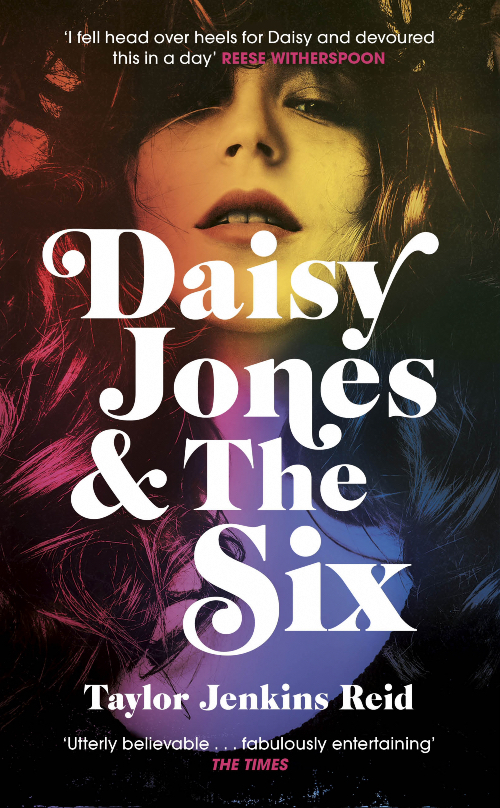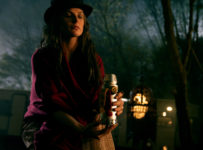
It's a wonder that there aren't more fake oral histories in the world. For the enterprising author, it's an excuse to not have to write prose sentences. Taylor Jenkins Reid's Daisy Jones & the Six is not lazy, but its format makes it zippy enough to destroy almost immediately upon opening its covers.
Daisy Jones & the Six is the oral history of singer/songwriter Daisy Jones, the band The Six, and their unholy union, Daisy Jones & The Six, which produced one hit album and then imploded on their first tour. With the participation of key members of the band and their circles, a full picture is painted of their rise and fall.
The first thing you'll notice about Daisy Jones & the Six is that it is a book about music, about fake songs that no one has ever heard. We have to take the characters' word for it that the work is great, because, unlike a real oral history, there's no primary sources to consult outside of the book. The end material contains the complete lyrics of the legendary album Aurora, but the anthems don't translate without the music to back it up. Maybe Daisy Jones & the Six were geniuses, but it's difficult to get a grasp on precisely why.
This being a book about music in the seventies, there is inevitably talk of heavy substance abuse, but Reid presents the issue as having only two solutions, and both of them are extreme. The false dichotomy at the core of Daisy's own story arc is uncomfortably presented, almost as if Reid had written herself into a corner and was desperately in need for a reason for what we knew was coming since the outset. The interpersonal relationships between Daisy and the Six are not entirely rationally expressed — there are logic gaps that the characters ignore, repeatedly — but it made sense to them at the time, even if it's actually Reid telling them what to say.
Reid has fun with the form, however: the history delights in running contradictory quotes one after another, and one of the participants in the project remains so bitter about his role that it loops back around to humour. It is occasionally difficult to keep track of who is specifically who, but the flow conceptually makes sense. Outside the auditory component, it is easy to connect with Daisy Jones & the Six.
The novel kind of cheats itself out of its ending, playing its hand too extravagantly and conveniently to present a conclusion designed to please people who could not reasonably have expected this particular resolution. An epilogue is welcome, particularly given that the action takes place at a good forty years' remove from the time of the oral history's "compositionâ€, but it needn't be quite so neat.
Daisy Jones & the Six is set to become a TV series courtesy of modern book club maven Reese Witherspoon, and that is a perfect venue for it. It invites a series of new problems, chief among them the need to have the songs sound period appropriate and, more importantly, good, but the breathing room for the characters and the tangibility of the band's output should pay dividends.
Daisy Jones & the Six is not a conventional read, so it seems an odd selection for book club members to fawn over (its cast is large, and not all of them significant), but it's an enjoyable story told efficiently. Reid asks her readers to take several leaps of the imagination, but she renders her fake 1970s Hollywood so effectively that it's not so arduous a place to visit.


